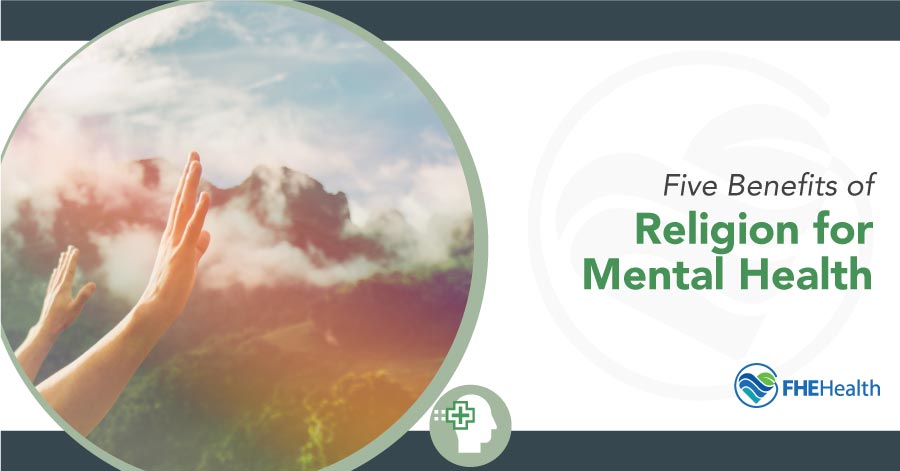
Faith plays an important role for millions of people, providing guidance and a greater purpose in life. Nearly 80% of Americans consider themselves followers of a particular religion, whether Christianity, Judaism, Islam or one of the other myriad of religions practiced around the world.
Religion can do a lot of good for those who participate in faith-based institutions, providing strength in times of weakness, direction when feeling mentally or spiritually lost, and comfort when love and support are needed. And for many people, practicing a religion can have a positive effect on mental health.
Religion is often a central tenet in rehabilitation programs of all kinds. Those struggling with mental illness are often encouraged to find strength and structure in religion, and 12-step programs rely on the presence of a higher power to guide recovery. And anecdotally, it seems to work. While not necessarily the right fit for everyone, combining mental health and religion can have strong effects on the outcome of a treatment program for those willing to commit.






